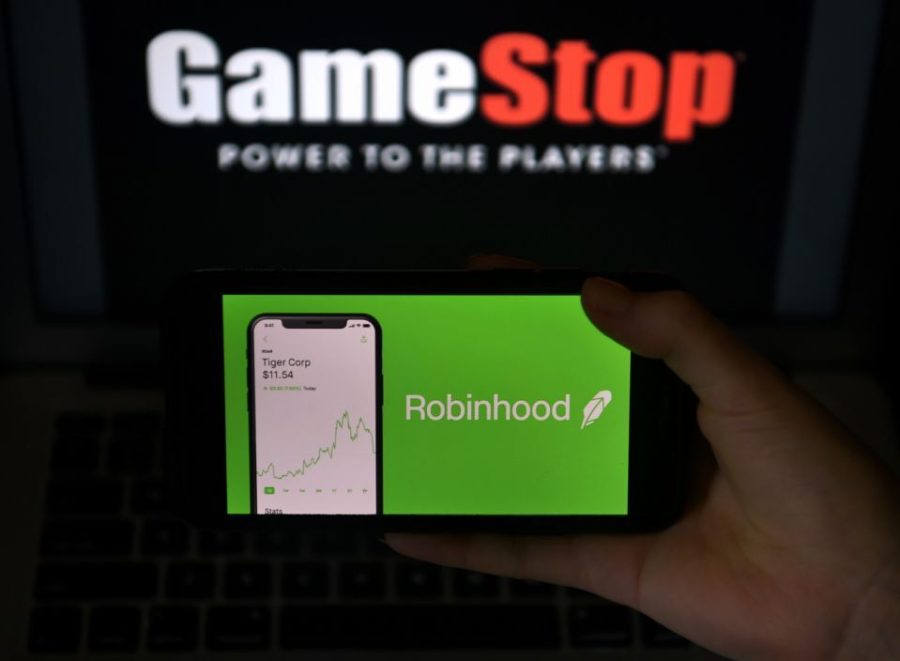Robinhood Betrayed its Users
Courtesy of Oliver Douliery, Getty Images
Investment app Robinhood suspended user activity.
February 3, 2021
I first joined Robinhood about a year ago, lured by the prospect of commission-free trading and a free share of complimentary stock. It became a secure and simple introduction to the challenging and daunting stock market for amateur investors, like myself. Robinhood and its competitors, like WeBull and TDAmeritrade, granted a unique opportunity for users to interact and contribute to the free market regardless of socio-economic status. That is why last week’s decision to halt orders of GameStop ($GME), AMC ($AMC) and countless other stocks was nothing short of betrayal to the company’s customers and values.
Much like the similarly named fictional character, “Robinhood’s mission is to democratize finance for all,” believing “that everyone should have access to the financial markets” (Robinhood, “Our Mission”). However, when Reddit users collaborated en masse to drive the price of $GME and hinder multi-billion hedge funds from short-selling the stock, Robinhood chose to appease the hedge funds. Users could not execute trades on the stock, inevitably driving down the price and diminishing the massive losses already taken by hedge funds like the Chicago-based Citadel Securities.
Many of Robinhood’s competitors took similar action, citing pressure from clearing houses (third party companies that streamline the trading process for many commission-free, mobile trading applications) to immediately halt trades on specific stocks. Clearing houses, like Apex Clearing, did this, claiming they were unable to handle the exponentiated costs of clearing from the recent market fiasco. However, Robinhood itself does not use an external clearing house, and instead relies upon in-house services and technology. The company thus reserves complete control over its ability to process and offer market securities, rendering them solely responsible for any actions taken.
Additionally, much of Robinhood’s revenue flows from “market-maker” investment firms who offer millions to access real-time information of the app’s transactions. What is so infuriating is the fact these firms include the very hedge funds who sought to benefit from trading limitations, like Citadel Securities. Whether or not coercion was Robinhood’s reason for acting as it did, its recent decisions plainly show that the company values its relationship with big Wall Street over its broad, dedicated user base.
Despite a few politicians from either end of the political spectrum condemning Robinhood’s actions, like Josh Hawley and Alexandria Ocasio-Cortez, most major figures and publications have remained silent on the topic. Some even voiced contempt towards small investors. Ironically, the world’s wealthiest man, Elon Musk, has been perhaps the most vocal critic of recent practices.
“Here come the shorty apologists Give them no respect Get Shorty,” Musk tweeted.
Robinhood betrayed its own mission statement, our nation’s integral free-market principles and most of all, its users. The message is clear: small, amateur investors are no longer welcome when they pose a threat to the billionaire classes’ insatiable endeavor to accumulate wealth. Robinhood has already had multiple class-action lawsuits filed against them. People are angry, rightfully so, because this is nothing short of an attack on economic freedom.










